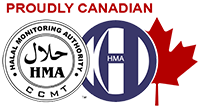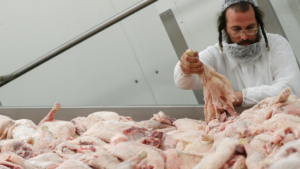The halal food sector is critical for Muslims worldwide to ensure sanitation and cleanliness and that anything they consume, use, or buy is not harmful to their health and well-being. Halal can theoretically be used as a quality indicator because it specifically refers to whatever is halal.
Syariah Islamiah permits all human activities and applies to all of them. Previously, Canada aimed to become a global Halal Food Hub by 2010, to increase its 1% global halal market share to 5% in 2010 by using its advantages over other Muslim countries in commerce, logistics, banking, and halal certification. To encourage the development of halal meat Toronto, concerted efforts, strategies, and measures are being implemented.
According to the State of the Global Islamic Economy Report, global Muslim spending across lifestyle sectors totalled $2.2 trillion in 2018, with food and beverage topping the list at $1.37 trillion, followed by clothing and apparel at $283 billion, travel at $189 billion, and pharmaceutical and cosmetics spending at $92 billion and $64 billion, respectively.
Halal Monitoring Authority Canada (HMA) has become a recognized emblem of Halal integrity worldwide because of its certification and auditing services. Halal items must be certified to be sold worldwide, as halal certification ensures that they meet Sharia, quality, safety, and cleanliness standards. Regardless of the certifying authorities, HMA Canada assures that these halal standards and conformity testing techniques remain the same. It will gradually abolish trade obstacles by providing trust and assurance in halal products. Holders of the Halal certificate will get a competitive advantage by creating superior and preferable products for the rest of the globe. At HMA Canada, we think giving back to the community and promoting the greater good is the source of all things to live a positive Halal lifestyle.
Why did HMA Canada choose Halal-certified businesses via honesty, expertise, and service as their mission? Let’s delve a little deeper. In the last two decades, the term “halal” has become popular in the food business and other markets where customer demand drives Halal compliance. Today, the worldwide Halal consumer market is rising in lockstep with the Halal product trend. HMA aims to help businesses increase market share by increasing product awareness and acceptability through Halal certification.
Halal certification can provide significant benefits to Canadian farmers. According to the Canadian Export Council, 15.8% of Canadian production was exported in 2018, with $771 million (a 12 percent increase from 2017) going to Southeast Asia and $251 million (a 7 percent increase) going to the Middle East. Global demand is increasing, and these areas present enormous prospects for the Halal sector to thrive. The industry has invested in Halal certification for a range of essential components, including meat halal, yogurt and cheese cultures, as early as 2010, according to the trade website Reporter, assuring that they would be able to fulfill the growing demand. Other companies targeting these markets can obtain Halal certification to ensure their products are competitive with Muslim consumers. Halal certification has significant advantages for halal markets in Canada. Due to rising demand for processed food goods, a larger Muslim population, and improved spending power of Muslim consumers, different regions of Canada are likely to make up a significant part of global Halal profits.
One of the most significant advantages of halal certification is that businesses don’t have to spend money on creating or renting shop space to attract clients. Companies may attract shoppers from the four corners of the globe if they understand their customers’ wants and interests. In the case of consumables, this frequently necessitates a grasp of and adherence to cultural and regulatory constraints. HMA Canada assists businesses in achieving their market growth goals by advising international export compliance and cultural sensitivities.
By obtaining Halal certification, brands can appeal to sub-groups such as green customers, vegans, vegetarians, quality-aware consumers, and consumers with health-related or dietary concerns in the United States. Certification ensures that ingredients and processes comply, allowing customers to shop confidently.
When expanding into international markets, companies and retailers must consider the legal and cultural environments of each country they promote and sell to. Many nations in the Middle East and Southeast Asia demand a Halal seal of approval from a recognized certifier before selling items abroad. Certification can help suppliers reach millions of customers worldwide and offer them a competitive advantage over non-certified competitors. Many brands can no longer ignore halal certification as a significant expenditure of scarce resources. During the pandemic, the brands and retailers that we could quickly adapt to omnichannel marketing were the most successful. This investment is projected to pay off for many years to come. Brands that invest in halal certification can gain a competitive advantage in their markets by halal-certifying their products, thereby expanding their reach.




